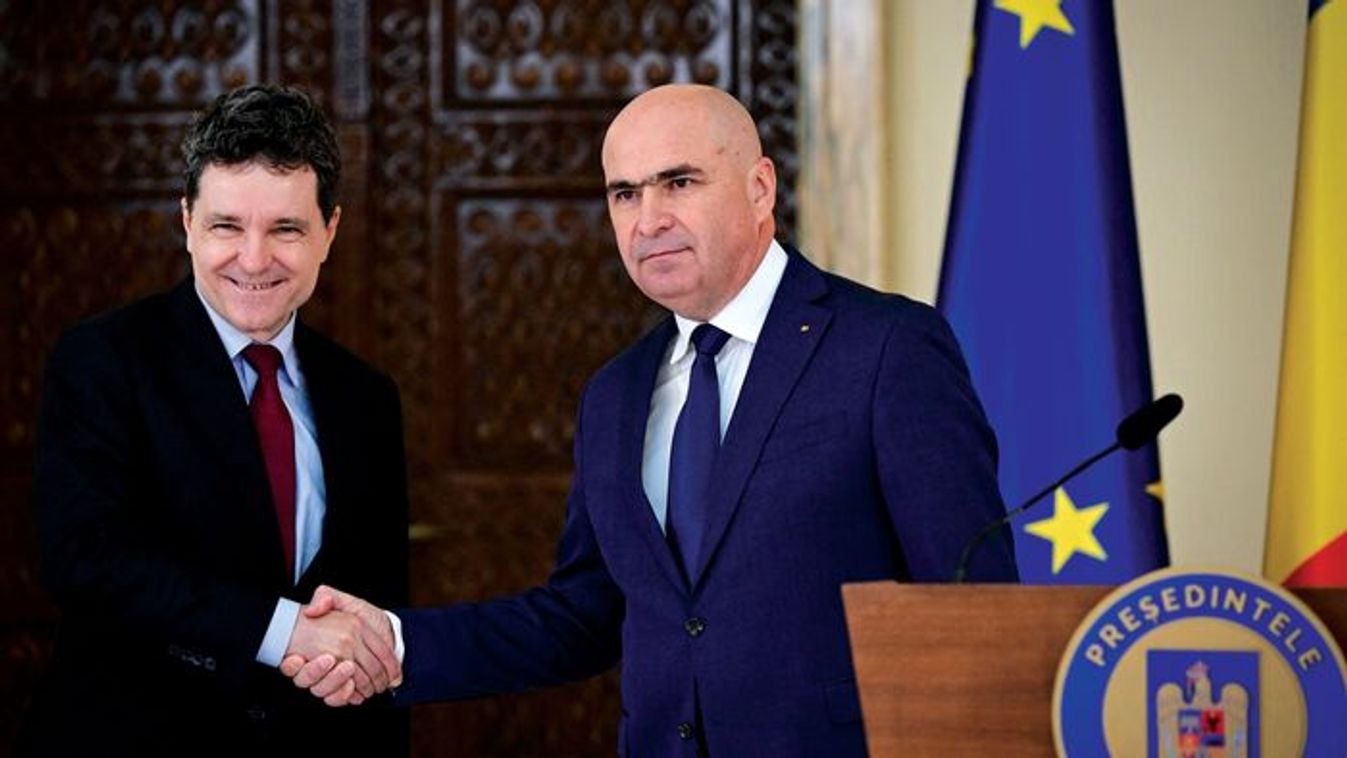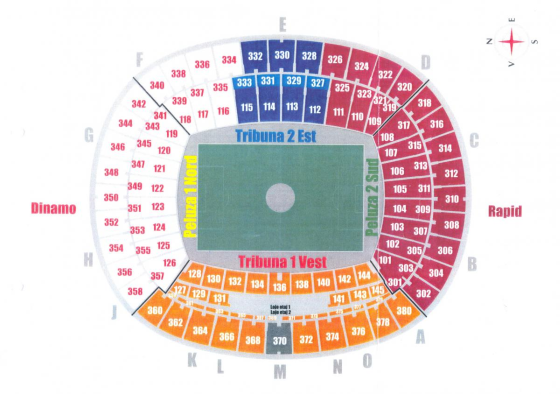Újra bent a magyarok a román kormányban!

Megalakult a rengeteg strukturális problémát öröklő kabinet Bukarestben, benne két magyar miniszterrel és egy kormányfőhelyettessel, élén pedig egy magyarokkal nemigen szimpatizáló miniszterelnökkel.

Hungary recently played a football match against Finland in a partially closed stadium as a sanction for the Hungarian supporters' chants during a previous Romania-Hungary match. Romanian fans at the same match, however, were not sanctioned for rhymes against the Hungarian minority in their country.
"Afară, afară cu ungurii din ţară!"
(A rhyme in ancient Romanian)
Hungary played its Euro 2016 qualifier against Finland, November 12, in a stadium with two sectors closed. UEFA’s disciplinary body, after much procrastination, finally issued a decree concerning a match between Romania and Hungary that had taken place October 11. The European association fined both teams and imposed a penalty in the form of the partial closure of their stadiums. At first sight, the decision sounds Solomonic, reasonable and even-handed, but upon closer view, not so much. The decree sanctions the Hungarian supporters’ Roma- and Romanian-bashing as racist behaviour, but the anti-Hungarian chants of the Romanian supporters were completely overlooked. Here's what the decree said:
"Romanian Football Federation (FRF)
Incidents: Setting off/throwing of fireworks and missiles – Article 16(2) UEFA Disciplinary Regulations; Use of laser pointer – Art. 16(2) DR; Crowd disturbances – Art. 16(2) DR; Illicit banners – Art. 16 DR
Hungarian Football Federation (MLSZ)
Incidents: Racist behaviour – Article 14 UEFA Disciplinary Regulations; Setting off/throwing of fireworks and missiles – Art. 16(2) DR; Crowd disturbance (seats destroyed and thrown) – Art. 16(2) DR"
UEFA cited Articles 14 only against the Hungarian Football Federation, but it clearly would have been justified for the Romania side as well since the "Afară, afară cu ungurii din ţară!" ("Hungarians, get out of the country!"), a traditional Romanian anti-minority chant, resounded all over the stadium throughout the match. Here, the chant can be clearly heard:
The rhyming chant could be heard quite loudly already before the match had started:
And of course, there were the huge banners provocatively citing the article from the Romanian constitution that says "România este stat naţional, suveran şi independent, unitar şi indivizibil," or "Romania is a sovereign, united and indivisible nation-state." The banners were unfurled around the stadium not out of benevolence toward the ethnic Hungarians living in Romania, a minority that constitutes 6.5 percent of the country's population.
Regardless, only Hungary was sanctioned for violation of Article 14 of UEFA’s disciplinary regulations. Its first two paragraphs say:
"(1) Any person under the scope of Article 3 who insults the human dignity of a person or group of persons by whatever means, including on the grounds of skin colour, race, religion or ethnic origin, incurs a suspension lasting at least ten matches or a specified period of time, or any other appropriate sanction.
(2) If one or more of a member association or club’s supporters engage in the behaviour described in paragraph 1, the member association or club responsible is punished with a minimum of a partial stadium closure."
The penalties for the two countries may seem similar at first, but ultimately the Hungarian association got the worst of it. Though Romania had to pay two thousand euros more, the sanction concerning the partial closure of the stadiums was harsher for Hungary as it saw a more than ten percent decrease in the number of spectators at the national team's subsequent match against Finland. This meant a loss of 2.500 seats out of the 22.000 total. Romania, on the other hand, for the match against Northern Ireland, was forced to close only sector no. 122, one of 125 sectors in their stadium.

Sector no. 122 in the Romanian stadium
Moreover, everybody remembers the disciplinary reprimand Hungary received following the match against Israel. After Hungarian fans booed the national anthem of Israel and shouted anti-Semitic slurs, the Hungarian national team had to play the following world championship qualifying match in an empty stadium – incidentally, a match against the Romanian team. That decision, however, was not handed down by UEFA, but by FIFA’s disciplinary association.
*
(The post was originally published in Hungarian on Mandiner's blog. This is a translated and edited version. Illustration by Ultras Liberi.)